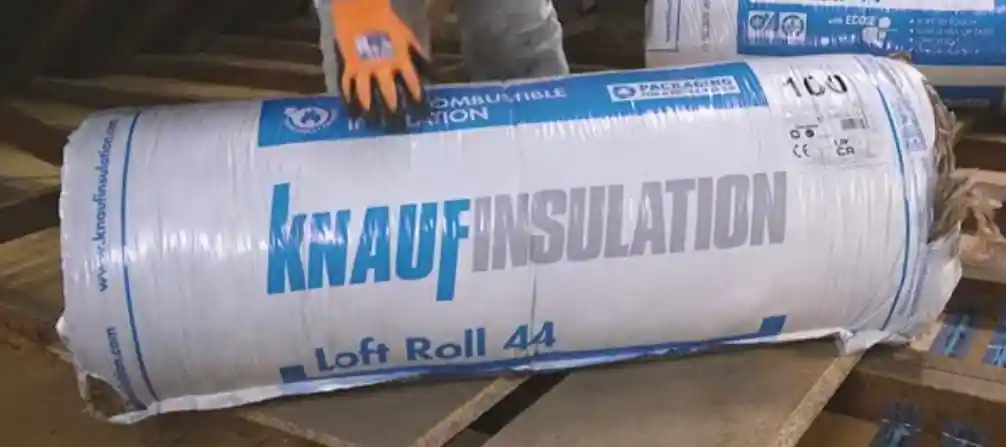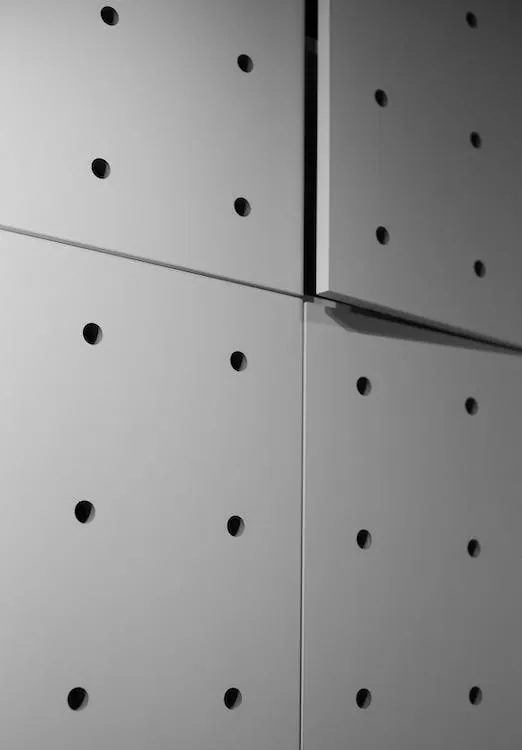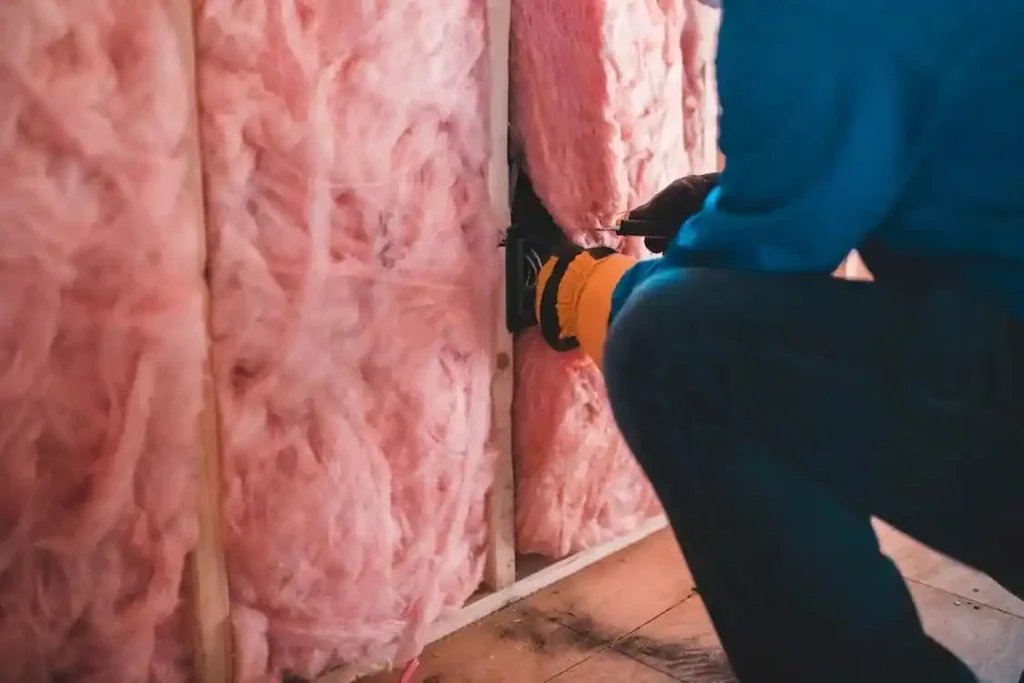how to make home soundproof / how to make your house soundproof / benefits of soundproofing a room / best sound insulation for walls / soundproofing company
How to make home soundproof, this post helps to make your home more silent as well as insulated. So many people want to make home soundproof and acoustic but they don’t know the proper way, with accurate steps and soundproofing insulation material. If you want to read the information about Soundproof office ceilings, just click and read the post.
So, here in the first section, we will see the benefits of a soundproofing room.
Benefits Of Soundproofing A Room

According to insulation experts and our study, there are several advantages to soundproofing a room, depending on the situation and your objectives. You may achieve the benefits of this soundproof quality by using acoustic baffles, we shared information about this, in Installing Insulation Baffles, in this post. So, some are a few typical benefits:
Decreased Levels of Noise
Interior Noise: Soundproofing makes an interior space more comfortable and quieter by reducing the influence of outside noises.
Outside Noise: It can also help keep noise from a room from upsetting individuals in nearby areas.
Enhanced Silenced
By making it harder for outside noise to hear internal activities like music, discussions, or other activities, soundproofing can improve privacy.
Improved Attention and Concentration
Soundproofing can improve the environment for focus in offices and study spaces by lowering outside noise distractions.
Improved silent environment for Sleep:
Bedroom soundproofing is frequently utilized to create a calm and quiet environment that encourages better sleep.
Observance of Regulations:
Improved Attention and Concentration:
Soundproofing can improve the environment for focus in offices and study spaces by lowering outside noise distractions.
Improved Quality of Sleep
Bedroom soundproofing is frequently utilized to create a calm and quiet environment that encourages better sleep.
Monitoring of Regulations
Certain municipal building laws or regulations may demand soundproofing, particularly in commercial or multi-family residential buildings.
A rise in the value of the property
Effective soundproofing measures can make a home or business more appealing to prospective tenants or buyers, which would raise the property’s value.
Certain municipal building laws or regulations may demand soundproofing, particularly in commercial or multi-family residential buildings.
Improved Sound Quality
By lowering undesired reverberation and echoes, soundproofing can improve a room’s overall acoustics. Soundproofing can keep outside disturbances from interfering with the intended sound in areas where audio quality is important, like home theatres or recording studios.
Reduced Tiredness and Stress:
An ongoing exposure to loud noises might exacerbate weariness and stress. An atmosphere that is calmer and cozier is facilitated by soundproofing.
Preventing Sound Leakage:
Installing soundproofing measures can stop sound from seeping out of a space, which is especially crucial in places where privacy is crucial.
Improved Energy Efficacy
In addition to offering thermal insulation, some soundproofing materials also aid and work in temperature regulation, which enhances energy efficiency.
Attachment to Industry Standards
Maintaining high-quality output in some industries, like broadcasting and music creation, requires strict adherence to soundproofing regulations.
It is crucial to select the appropriate materials and methods for soundproofing based on the particular needs and features of the area you are dealing with.
Soundproofing Company

Here’s a list of companies that are known for providing sound insulation services:
soundproofing company
- Owens Corning
- Roxul
- Johns Manville
- Certain Teed
- Knauf Insulation
- Green Glue
- Acoustical Surfaces
- National Applied Construction (NAC)
- Super Soundproofing Co
- Kinetics Noise Control
- Auralex Acoustics
- IIG Industrial Insulation Group
Note that it’s important to do some research and get in contact with these businesses personally to be sure they service your area and provide the precise sound insulation solutions you require. In addition, reviews, look for reviews to see how satisfied past customers were.
Best Sound Insulation For Walls
It is impossible to overestimate the significance of a peaceful and harmonious setting in the symphony of our lives. To make your home comfortable, noiseless as well and silent, the correct and best wall insulation investment is crucial, whether your goal is to create a soundproof studio, a calm house, an efficient business, or any office. Let’s we will see the best possibilities available and venture into the world of tranquility and silence.
A combination of sound-absorbing, sound-dampening, and sound-blocking materials is ideal for effective wall sound insulation. Here’s a suggestion for a thorough soundproofing strategy:
Mineral Wool Insulation
Think about insulating with mineral wool. Because it is denser than ordinary fiberglass insulation, sound is better absorbed by it. Another strong contender is mineral wool, which is frequently formed from rock or slag. Because of its great density, it is a superior sound absorber. Additionally, we can say about mineral insulation, mineral wool resists fire, which gives your room an additional degree of security from unwanted noise. With its exceptional ability to reduce impact and airborne sounds as well as noise, it is an adaptable option for use in recording studios, businesses, and residences. Install it into the walls to reduce vibrations caused by sound.
Panels for Acoustics

Organize the walls with acoustic panels. The purpose of these panels is to absorb sound waves, which lessens reverberations and echos. Acoustic panels, this soundproofing insulation material becoming more and more popular as a more contemporary and attractive solution. These acoustic and soundproofing insulation panels are intended to dampen sound reflections and are frequently constructed of foam or materials covered in cloth.
They operate as decorative insulation material along with soundproofing quality in addition to being useful. Because acoustic panels are so easily adjustable, you may enjoy a quieter environment while still customizing them to your preferred look. In addition to being aesthetically beautiful, panels wrapped in fabric can also absorb sound.
Vinyl with a mass load (MLV)
MLV, a thick substance that resembles rubber, gives the wall more bulk and reduces sound transmission. Mass-loaded vinyl is a heavyweight champion when it comes to handling low-frequency sounds, such as traffic or machinery noise. It is mostly available as a thin and dense material that resembles rubber that can be put to walls to increase bulk and lessen sound waves’ ability to travel through them.
MLV is a useful addition to both residential and business settings since it works especially well in situations where there is limited space. Put MLV in place on the walls to block out noise.
Green Glue and Double Drywall
Use two layers of plasterboard and place a layer of green glue between them. A viscoelastic damping material called “Green Glue” transforms sound energy into heat. A polymeric substance called “Green Glue” can be put in between plasterboard layers. This insulation material should provide superior noise reduction by converting sound energy into heat. Because of its flexibility, this insulation means green glue may be used for both new construction and wall retrofitting.
When looking for a solution that achieves an agreement between cost and effectiveness, Green Glue is the way to go. By adding mass and dampening to the wall, this technique lessens sound transmission.
Fibreglass Insulation

A popular option for soundproofing walls is fiberglass insulation. Sound waves are effectively absorbed due to their dense composition, which stops them from bouncing about a room. This material works very well at cutting down on mid-to high-frequency problems, and it’s simple to install. In addition, it should offer thermal insulation, serving two functions in preserving a cozy interior environment as well as noiseless.
Cellulose Insulation
Cellulose insulation is a very attractive alternative for people who are environmentally conscious. Because it is made of recycled paper and has been treated with fire retardants, as well as it can help to reduce noise pollution as well as support sustainability. For maximum sound absorption, cellulose insulation can be sprayed or blown into walls, filling in every one of the corners and holes.
Bass traps and resonators
Put bass traps in the room’s corners to record low-frequency noises.
Resonators can be arranged in a certain way to absorb particular frequencies and stop noise accumulation.
Seal Cracks & Gaps
Make sure that every opening, crevice, and gap in the walls is sealed. For this use, acoustic caulk is appropriate.
Windows, doors, and electrical outlets should all be noted because they may be weak spots for the transmission of sound.
Sound insulation is an important thing in the perfect combination of design and usefulness with clam and silent environment. The type of noise, your budget, and your aesthetic choices are just a few of the variables that will determine which wall solution is best for you. The objective is the same whether you choose to use contemporary acoustic panels, eco-friendly cellulose, or classic fiberglass acoustic panels: to create a place where calm and peace rule and you can fully appreciate life’s symphony.
Your life and your property are an investment, so make sure your walls and home are adequately insulated against noise and high-volume sound. All right, let the walls talk, but only quietly.
How To Make Home Soundproof / How To Make Your House Soundproof
Creating Calm: An All-Inclusive Guide to Insulating Your House from Noise
First of all,
The value of having a quiet haven at home is immeasurable in a noisy society. Whether it’s the noisy neighbor’s music or the busy street outside, soundproofing your house can make it a peaceful retreat. You will learn how to soundproof different areas of your home with the help of this tutorial.
Locate the Sources of Noise
Effective soundproofing starts with knowing where the noise is originating from. Is it impact noise, such as footsteps, or airborne noise, such as voices or music?
Close Any Holes
Check for any gaps in your windows and doors first. Surprisingly much sound can be let in through even tiny openings. Two reasonably priced methods of filling gaps are weatherstripping and door sweeps. For minor gaps and cracks around windows and doors, use acoustic caulk.
Replaced Doors
Consider replacing your weak or hollow doors with solid core ones if possible. These doorblocks sound better because they are denser. Don’t forget to use weatherstripping to seal the edges.
Treatments for Windows
A layer of sound attenuation can be added by using heavy drapes or curtains. To get and achieve the best results, you have need to choose materials that are tightly knit and dense. Installing double-glazed windows is something you should definitely think about since they offer better sound insulation.
Insulation for Walls
Sound transmission can be considerably reduced by insulating interior walls. Rock wool and fiberglass insulation are great options as well and acoustic panels are also best for making your home more soundproof. They not only stop sound from passing through the walls, but they also absorb it. Insulated walls helpful to soundproofing.
Sound Absorption Panels

Acoustic panels can be used to strategically place on walls to absorb and suppress sound. You can easily install these panels into your home’s decor because these acoustic panels come in a different variety of sizes and designs.
Improvements to the Flooring
Think about covering hard-floored areas with plush carpets or rugs. To lessen impact noise, consider placing underlayment underneath the flooring. Particularly useful are carpets with a dense pad.
Furniture Arrangement
Moving furniture around can provide an additional sound barrier. Large, big and massive, soft furniture should be placed up against walls facing noisy areas. This step of moving and arranging furniture will make your home soundproof, helps in the absorption and spread of sound waves.
Build a Bookshelf
A room is given character by a bookcase full of books, which also acts as a thick sound barrier. Books come in a variety of sizes and shapes, which can help work in dividing and stopping sound waves.
Seal electrical outlets
Sound leaks may occur from switches and outlets located on external walls. To reduce this, place foam gaskets behind the lid plates.
Use of Heavy Materials
Wall coverings can be made of heavy materials like dense foam or cork. These materials work well as sound absorbers in addition to being aesthetically pleasing.
Decoupling
Think about separating the wall layers. This entails dividing the wall’s layers using sturdy channels or specialty clips and hooks to stop sound waves from passing through readily.
Keep in mind that the sort of noise you’re aiming to block (such as impact or airborne noise), the building’s architecture, and the intended level of sound reduction all affect how successful sound insulation is. To find a solution that is customized to your demands and the features of the room, speaking with a qualified contractor or acoustician may be helpful.
Bottom Line, How To Make Home Soundproof / Best Sound Insulation For Walls And Soundproofing Company
Sound insulation is an important thing in the perfect combination of design and usefulness in clam and silent environments. The type of noise, your budget, and your aesthetic choices are just a few of the variables that will determine which wall solution is best for you. A combination of sound-absorbing, sound-dampening, and sound-blocking materials is ideal for effective wall sound insulation.
Do let us know how you feel about this information by commenting.
Like our Facebook page and follow for other updates like this.

